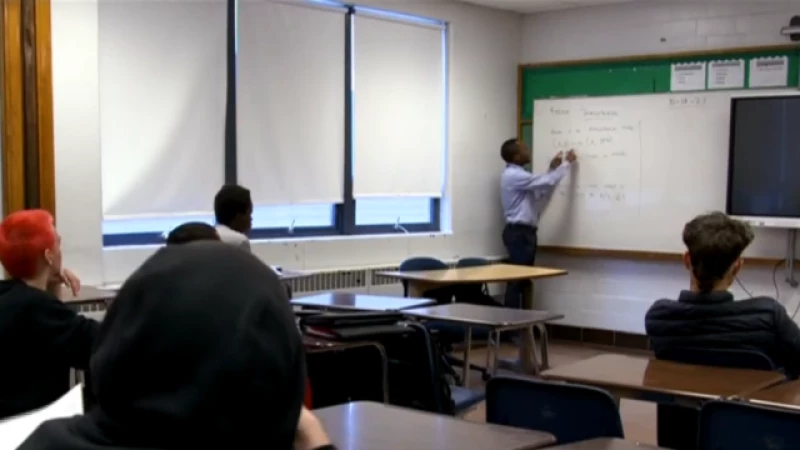Chronic Absenteeism on the Rise in U.S. Schools
While most schools in the U.S. have returned to full-time in-person learning after going remote at the height of the COVID-19 pandemic, the lingering effects of the lockdowns still remain.
Chris Lantz is part of an attendance team in Louisville, Kentucky, tasked with making up the 30 calls a week searching for chronically absent students.
He spends many days knocking on doors in Jefferson County, but receiving no answer.
Chronic absenteeism, defined as at least 10 absences in one school year, has always been an issue in Lantz's district, but since the pandemic, 37% more students are missing weeks — sometimes months — of school. Last year, nearly 13.6 million students nationwide were chronically absent, nearly twice as many as the year before.
Jefferson County superintendent Marty Pollio told CBS News he thinks the rise in chronic absenteeism is a "major crisis."
"When you think of housing instability, food instability, a student who doesn't have clean clothes may not come to school," Pollio said.
Each Jefferson County school has a youth service center that provides everything from clean clothes and hygiene products to food for struggling students. In Jefferson County, 63% of families rely on schools for meals.
We Want to Remove Barriers to Education, Says School Superintendent
"We don't want to punish them for not going to school," the school superintendent, Pollio, said. "We want to take away all the barriers that might be keeping them from coming to school."
Hector, a 19-year-old student, works 40 hours a week to help support his family. He told CBS News he missed "a lot of days" of school last year.
"Like half the year I didn't come to school," he said.
After several house calls, Lantz was able to convince Hector to return. He said the attention paid to him helped him to come back because it made him "feel like I'm special."
With added support, Hector is on track to graduate high school in 2025 at 20 years old.
Lantz said cases like Hector's help him feel like he's making a difference, regardless of how many houses he goes to with no answer.
"I think if you affect one person, it's a difference, you know, if you can change one person's life, I know that's cliche, but I think that's a big deal," Lantz said. "So, especially, you know, in some of our communities, you could save a kid."







